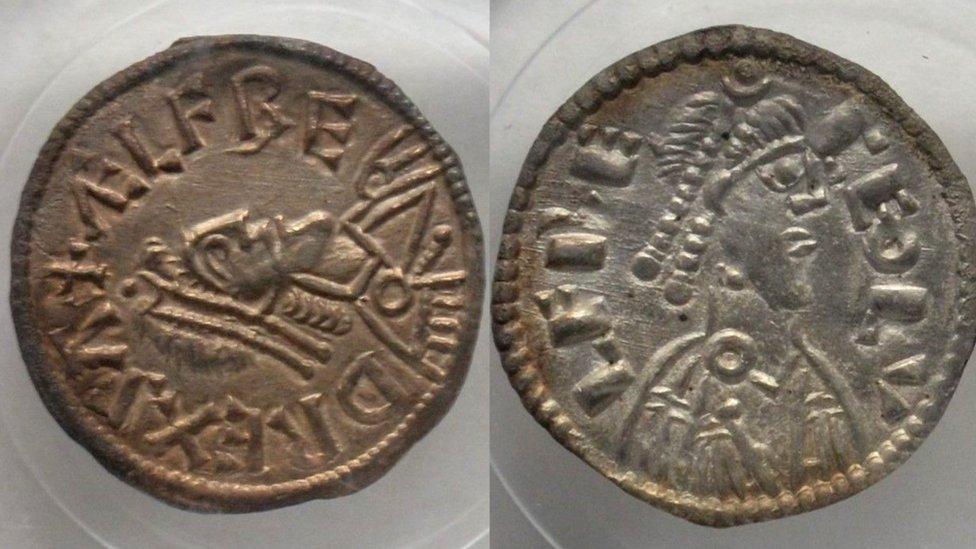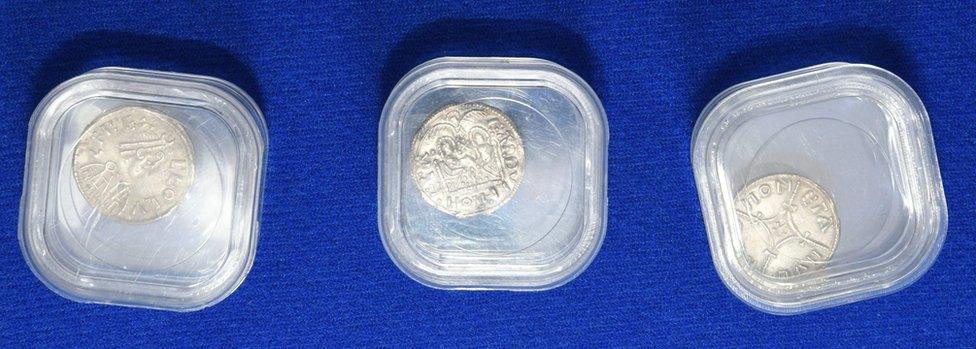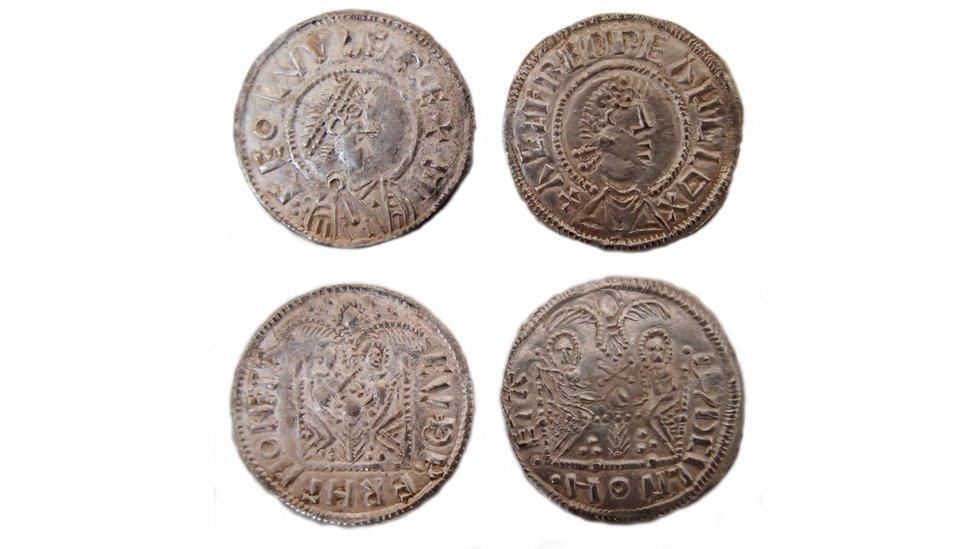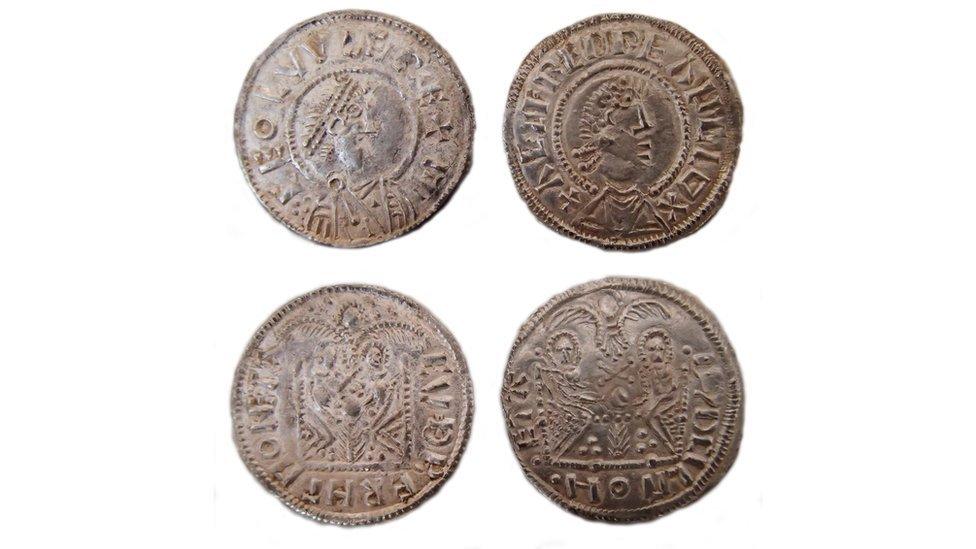Men guilty of Anglo-Saxon coin sale plot
- Published

The coins give new information on historical figures
Two men have been found guilty of trying to sell rare Anglo-Saxon coins.
Craig Best, 46, of South View, Bishop Auckland, and Roger Pilling, 74, of Loveclough, Lancashire, had denied conspiring to sell criminal property.
The two men, who were first arrested in May 2019 following an undercover police sting, had also denied separate charges of possessing criminal property.
Durham Crown Court heard the coins, valued at £766,000, were not declared as treasure and handed to the Crown.
Both men are due to be sentenced on 4 May.
'Lengthy and complex'
The coins, which are believed to have been buried by Vikings, are thought to have been part of a hoard first unearthed in 2015 and now with the British Museum.
The two metal detectorists who found the haul in 2015 were sentenced to a total of more than 18 years for selling the items and not declaring them as "treasure" under the Treasure Act 1996.

Experts say the coins add to understanding of political history in England in the 9th Century
The coins have shed new light on the relationship between two historical figures - Alfred, King of Wessex and Ceolwulf II of Mercia.
Det Supt Lee Gosling, Senior Investigating Officer for Operation Fantail, at Durham Constabulary said the investigation was "lengthy and complex".
He added: "This is an extremely unusual case, as it is not very often we get the chance to shape British history.
"It is astonishing that the history books need re-writing because of this find.
"These coins come from a hoard of an immense historical significance relating to the Vikings and we are delighted that they are now with the British Museum."

Follow BBC North East & Cumbria on Twitter, external, Facebook, external and Instagram, external. Send your story ideas to northeastandcumbria@bbc.co.uk, external.
Related topics
- Published24 April 2023

- Published12 April 2023

- Published11 April 2023
